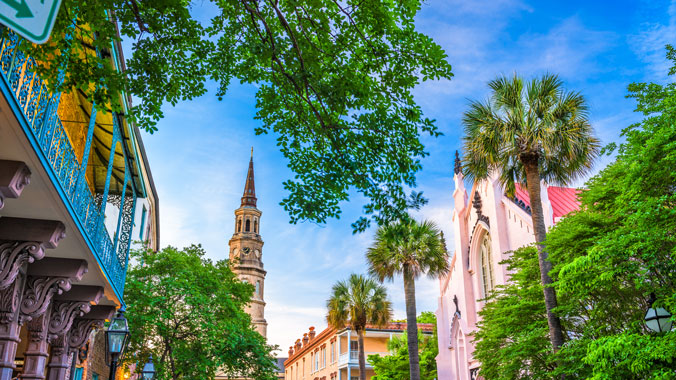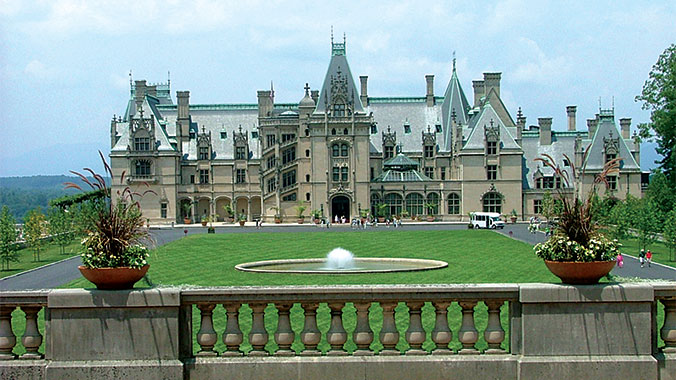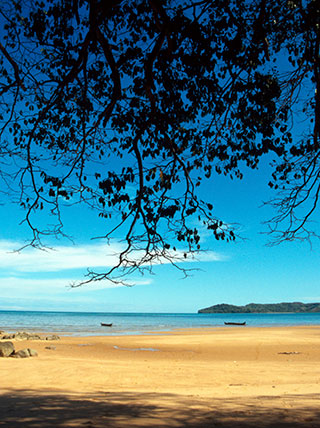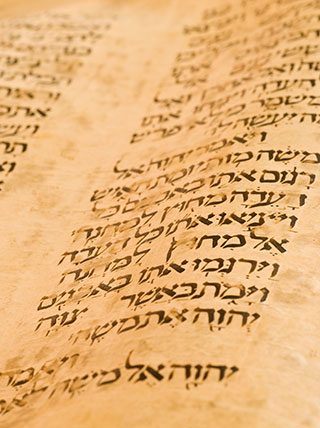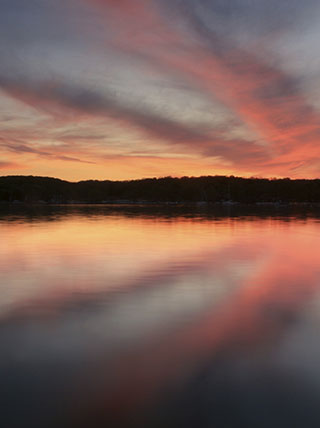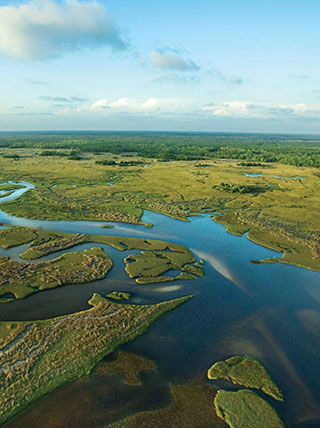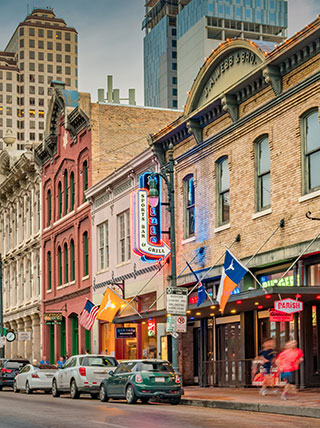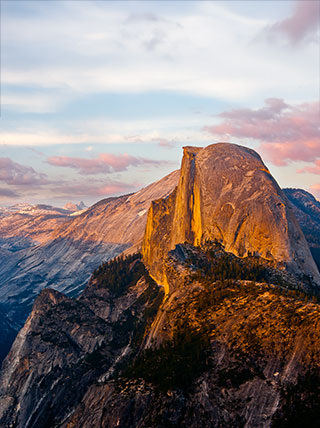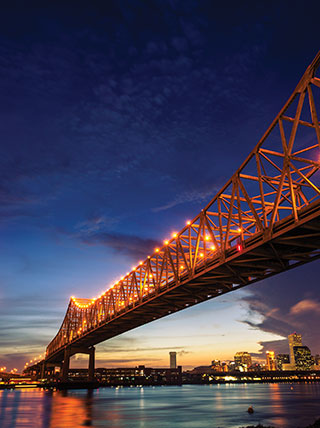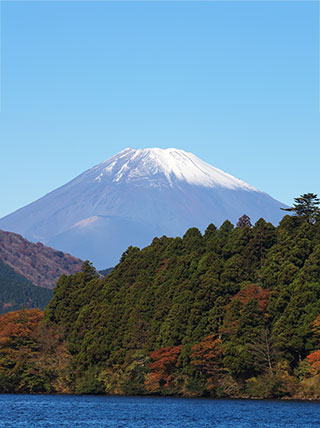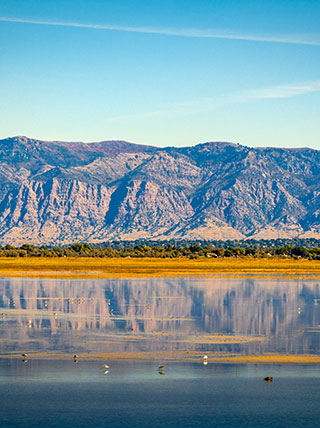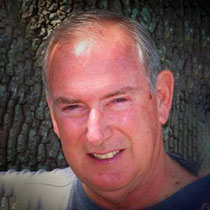
Georgia/North Carolina/South Carolina
On the Road: Atlanta, Asheville, Charleston and Savannah
Program No. 23348RJ
See these four historically significant cities of the South from diverse perspectives as you visit museums and historic districts.
Enroll with Confidence
We want your Road Scholar learning adventure to be something to look forward to—not worry about. Learn more
Protecting the Environment
We offset a portion of the emissions created by your travel. Learn more
10 days
9 nights
23 meals
9B 7L 7D
1
Check-in, Program Registration, Orientation, Welcome Dinner
Atlanta, Georgia
2
Regional History, Sweet Auburn, MLK Sites, Atlanta Capitol
Atlanta, Georgia
3
Transfer to Asheville, Jimmy Carter Presidential Library
Asheville, North Carolina
4
Asheville History, Biltmore, Antler Hill, Music
Asheville, North Carolina
5
Transfer to Charleston, Columbia-SC State Capitol
Charleston, South Carolina
6
History, Charleston, Boone Hall, Gullah Presentation
Charleston, South Carolina
7
Aiken-Rhett House, First Museum, Manigault House, Free Time
Charleston, South Carolina
8
Transfer to Savannah, Savannah Highlights by Trolley
Savannah, Georgia
9
Telfair & Jepson Museums, Owens-Thomas House, Cooking Demo.
Savannah, Georgia
10
Transfer to Atlanta, Program Concludes
Savannah, Georgia
At a Glance
Hit the road in Georgia and make your way from Atlanta to Asheville, Charleston and Savannah as you explore these four gems of the Southeast. Learn the stories of both historic giants and lesser-known men and women who made their mark on the south — from Martin Luther King Jr. and Jimmy Carter, to those enslaved on plantations and Civil War soldiers. Study the cultural significance of literary contributions from authors like Margaret Mitchell and Thomas Wolfe. Explore the architecture of historic district townhouses and great mansions and estates alike, and enjoy evening performances for a taste of folk and spiritual music of the past and present.
Activity Level
On Your Feet
Walking up to 1.5 miles, sometimes on dirt paths or uneven pavement. Standing in museums for up to an hour. Climbing stairs. Boarding coach.

Small Group
Love to learn and explore in a small-group setting? These adventures offer small, personal experiences with groups of 13 to 24 participants.
Best of all, you’ll…
- Explore the Biltmore Estate’s architecture and 8,000 acres of gardens, and learn how wine is made at the estate’s Antler Hill Farm and Winery.
- Learn about Gullah culture at Boone Hall Plantation, and take in the grave history of Owens-Thomas House and Slave Quarters.
- Dine where the famous have dined — Paschal’s Restaurant — and enjoy a cooking class as you learn about Southern cuisine.
Featured Expert
All trip experts

Tom Murray
Tom Murray is a graduate of San Jose State University but is a Southerner by choice, having spent more than 45 years in the South absorbing the culture, customs and history of the region. Tom specializes in coastal history with an emphasis on the sea islands of Georgia. Few people know and love beautiful Cumberland and Amelia islands better than Tom. He has spent 25 years lecturing and leading Road Scholar groups to sites from the mountains to the sea.
Please note: This expert may not be available for every date of this program.

Tom Murray
View biography
Tom Murray is a graduate of San Jose State University but is a Southerner by choice, having spent more than 45 years in the South absorbing the culture, customs and history of the region. Tom specializes in coastal history with an emphasis on the sea islands of Georgia. Few people know and love beautiful Cumberland and Amelia islands better than Tom. He has spent 25 years lecturing and leading Road Scholar groups to sites from the mountains to the sea.
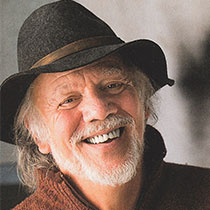
Lee Knight
View biography
Raised in the Adirondack Mountains of upstate New York, Lee is a folk singer, story teller and outdoor leader, performing at concerts, workshops, festivals and schools. He shares his knowledge of the natural world leading hikes, canoe trips and guiding whitewater rafts. Lee has collected and shares Cherokee legends and plays the Cherokee flute and rattle, as well as the Native American drum. He also plays the five-string banjo, guitars and the Appalachian dulcimer.
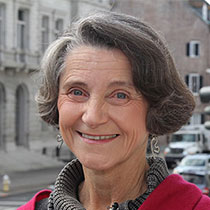
Ruth Miller
View biography
Ruth Miller, a graduate of Duke University, has lived all over America and journeyed throughout the world. As a Charleston historian and excursion leader, she enjoys tying local history into the American story and worldwide events. Ruth is the author and co-author of numerous books, including “Charleston Charlie — A Family Activity Book for Kids of All Ages,” “Touring the Tombstones,” and “The Angel Oak Story.” She is a member of the South Carolina Historical Society and the National Trust.

Kevan Frazier
View biography
Kevan Frazier is an Asheville native whose family settled in the Asheville area in the late 1700s. He is the author of “Legendary Locals of Asheville,” which details the pioneers, educators, artists and others who have had a lasting impact on Asheville. Kevan is a former member of the history faculty and administration at UNC Asheville, where he served for 17 years. He holds a doctorate in history from West Virginia University.
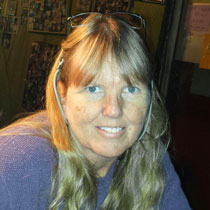
Joyce E Harvison
View biography
Joyce Harvison epitomizes Southern hospitality. A native of Savannah, she has worked for the last 30+ years in Savannah's Historic District, first as an insurance agent, and the last 16 years as a Director of Groups/Charters with a local trolley company showing off the city’s best sights to visitors from near and far. She revels in treating family, friends, and visitors to the best possible time, including hidden gems when they visit her home town. Joyce has two daughters and three grandchildren.
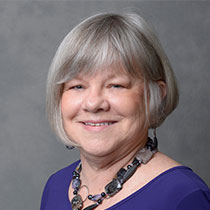
Anne Peery
View biography
Anne Peery has traveled extensively in the Southeastern United States. She has served in various leadership roles including the Executive Director of the Florida Trust for Historic Preservation. Anne holds a B.S. in education from Mississippi State University. She has worked with a volunteer group making medical-grade PPE for first responders in the Big Bend region of Florida.
Suggested Reading List
(9 books)
Visit the Road Scholar Bookshop
You can find many of the books we recommend at the Road Scholar store on bookshop.org, a website that supports local bookstores.
On the Road: Atlanta, Asheville, Charleston and Savannah
Program Number: 23348
Charleston! Charleston!: The History of a Southern City
This book records Charleston's development from 1670 and ends with an afterword on the effects of Hurricane Hugo in 1989, drawing with special care on information from every facet of the city's life-its people and institutions; its art and architecture; its recreational, social and intellectual life; its politics and city government.
City on the Verge: Atlanta and the Fight for America's Urban Future
Atlanta is on the verge of tremendous rebirth-or inexorable decline. A kind of Petri dish for cities struggling to reinvent themselves, Atlanta has the highest income inequality in the country, gridlocked highways, suburban sprawl, and a history of racial injustice. Yet it is also an energetic, brash young city that prides itself on pragmatic solutions.
Today, the most promising catalyst for the city's rebirth is the BeltLine, which the New York Times described as "a staggeringly ambitious engine of urban revitalization." A long-term project that is cutting through forty-five neighborhoods ranging from affluent to impoverished, the BeltLine will complete a twenty-two-mile loop encircling downtown, transforming a massive ring of mostly defunct railways into a series of stunning parks connected by trails and streetcars.
Acclaimed author Mark Pendergrast presents a deeply researched, multi-faceted, up-to-the-minute history of the biggest city in America's Southeast, using the BeltLine saga to explore issues of race, education, public health, transportation, business, philanthropy, urban planning, religion, politics, and community.
An inspiring narrative of ordinary Americans taking charge of their local communities, City of the Verge provides a model for how cities across the country can reinvent themselves.
A Witness to History: Charleston's Old Exchange and Provost Dungeon
The Old Exchange and Provost Dungeon in Charleston, South Carolina, is one of the great buildings of Colonial America. Serving as city hall, customs house, post office and prison; as the British Headquarters during the occupation of Charles Towne and then host to a great ball honoring George Washington, the Exchange has been an eyewitness to America’s history. This stoic building-—designated a National Historic Landmark in 1975—-has been described as the best example of the dignity and ornament of the traditional English “exchange-town hall” design of the eighteenth century built in the United States. From within its Great Hall to deep below in the Provost Dungeon, the Exchange has played a vital role in American history. Andrus’ and Miller’s fast-paced and readable survey of the history and significance of the Old Exchange Building will appeal to visitor and serious historian alike.
Savannah: A History of Her People Since 1733
Savannah: A History of Her People Since 1733 offers a chronological view of Savannah history, including period photogrpahs and sketches. If you are acquainted with Savannah, this book will help solidify your knowlegde. If you are new to Savannah or need to learn more about the city, the book will increase your knowledge.
Charleston: City of Memory
Hidden History of Savannah
Savannah has repeatedly stood on the edge of ruin, brought to its knees by bloody battles, mysterious pestilence, fire, unforgiving weather and the drums of war. Men and women whose names echo in history once walked its streets. Countless other faces are seemingly forgotten, names that history held in looser grip--like Mary Musgrove, the colonial translator and entrepreneur, or Dr. Samuel Nunes, shipwrecked by chance on Savannah's coastal shores just in time to curb a deadly epidemic and save Savannah's first settlers. And then there's John Geary, the larger-than-life Union general who beat Sherman's march south to the sea. Join authors Brenna and T.C. Michaels as they explore Savannah's long, wide and very often hidden history.
Saving Savannah: The City and the Civil War
In this masterful portrait of life in Savannah before, during, and after the Civil War, prize-winning historian Jacqueline Jones transports readers to the balmy, raucous streets of that fabled Southern port city. Here is a subtle and rich social history that weaves together stories of the everyday lives of blacks and whites, rich and poor, men and women from all walks of life confronting the transformations that would alter their city forever. Deeply researched and vividly written, Saving Savannah is an invaluable contribution to our understanding of the Civil War years.
Courage to Dissent: Atlanta and the Long History of the Civil Rights Movement
The Civil Rights movement that emerged in the United States after World War II was a reaction against centuries of racial discrimination. In this sweeping history of the Civil Rights movement in Atlanta--the South's largest and most economically important city--from the 1940s through 1980, Tomiko Brown-Nagin shows that the movement featured a vast array of activists and many sophisticated approaches to activism. Long before "black power" emerged and gave black dissent from the mainstream civil rights agenda a new name, African Americans in Atlanta debated the meaning of equality and the steps necessary to obtain social and economic justice.
This groundbreaking book uncovers the activism of visionaries--both well-known legal figures and unsung citizens--from across the ideological spectrum who sought something different from, or more complicated than, "integration." Local activists often played leading roles in carrying out the integrationist agenda of the NAACP, but some also pursued goals that differed markedly from those of the venerable civil rights organization. Brown-Nagin discusses debates over politics, housing, public accommodations, and schools. She documents how the bruising battle over school desegregation in the 1970s, which featured opposing camps of African Americans, had its roots in the years before Brown v. Board of Education.
Legendary Locals of Asheville
Like all great cities, Asheville’s story is one of people, not institutions or industries. For more than two centuries, deep in the Appalachian Mountains of North Carolina, extraordinary women and men have created a truly unique American city. Legendary Locals of Asheville tells the stories of the people who founded, built, and rebuilt Asheville. From the first woman elected to state office in the South, who won her primary before women had the right to vote, to the grandson of a famed railroad magnate who built a 250-room chateau that became the largest home in America, to the entrepreneur who helped ignite the city’s renaissance when he risked opening an art gallery downtown when most of it was still boarded up, Ashevillians are an amazing lot. Likewise, there are stories of extraordinary groups like the renowned faculty of an experimental college that redefined the American arts or the brave high school students who joined together to fight segregation. Their stories are as touching and fascinating as they are varied.

